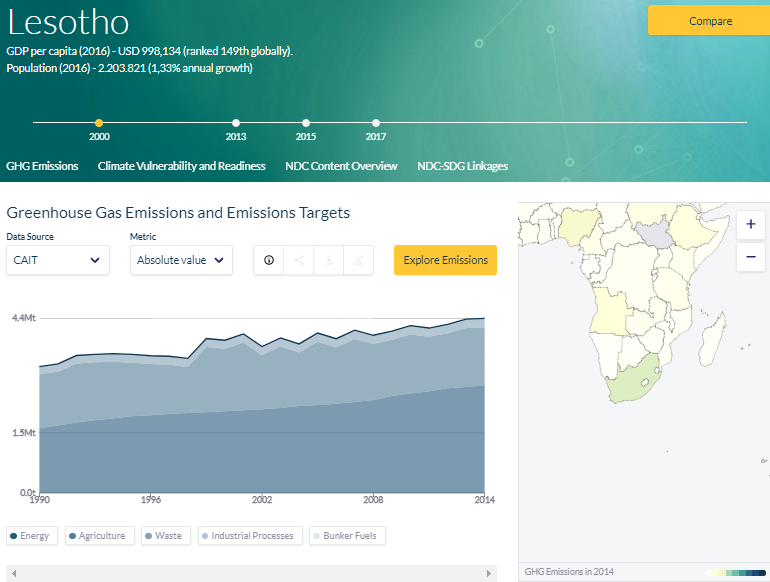Einführung/Introduction Lesotho
Das Königreich Lesotho ist ein Binnenland im süd-östlichen Afrika, es ist komplett vom Staatsgebiet Südafrikas umgeben. Landschaftsprägend ist das Hochgebirge (die Drakensberge). Die gesamte Landesfläche liegt über 1000 Metern. Der niedrigste Punkt im Land ist 1399 Meter ü.M., der höchste etwa 3500 Meter ü.M. In den regenreichen Gebirgsmassiven gibt es viele Wasserfälle und Stauseen.
Weitere Informationen zu Lesotho und zur dortigen Geographie
The Kingdom of Lesotho is situated in the south eastern region of Southern Africa, covering an area of 30,355 km² and is entirely surrounded by South Africa. Lesotho’s geographical formation is characterised by high mountains and deep valleys, and it is the only country in the world to have all its entire territory located at more than 1,000 metres above sea level. More than 75 % of Lesotho is mountainous, with only 25 % considered lowland. The lowest point is 1,388 metres rising to almost 3,500 metres in the Maloti mountain range which forms the border with South Africa to the north east and south west. Thabana Ntlenyana, at 3,483 metres, is the highest mountain in Southern Africa, whilst Maletsunyane Falls is one of the tallest single-drop waterfalls in the region plunging for 192 metres and Sehlabe-Thebe National Park.
Source: http://www.sadc.int/member-states/lesotho/
Climate Watch Data / Klimadaten: Lesotho
Source: SDG Linkages Northrop, E., H. Biru, S. Lima, M. Bouye, and R. Song. 2016. “Examining the Alignment Between the Intended Nationally Determined Contributions and Sustainable Development Goals.” Working Paper. Washington, DC: World Resources Institute. Available online at: www.climatewatchdata.org





















